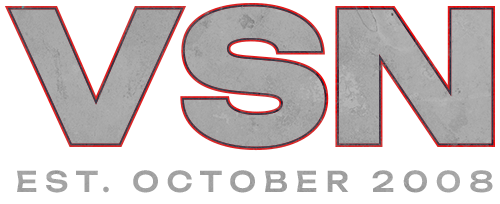Now that the Green Bay Packers have reached a two-year, $15 million contract with potential unrestricted free agent tight end Jermichael Finley, one might expect Packers fans to be feeling something of a sense of euphoria. After all, it isn't every day that a team can secure the services of an elite player.
That mindset would be understandable except for one minor detail, which is saying Finley is one of the best tight ends in the league really is not an accurate assessment. In fact, if one reviews Finley's numbers with an objective eye, it becomes clear that he might not even be one of the top 10 tight ends in the NFL.
If these numbers are viewed in a vacuum, they are solid, but remember that these are the numbers Finley posted in an Aaron Rodgers-led offense while Rodgers was setting an all-time record in passer rating (122.5) and becoming only the fifth quarterback since 1990 to tally a yards per attempt (YPA) total of 9 yards or higher (9.2).
Another way to view Finley's season is to note a point I made in an article posted in January that said the New York Giants' pass catchers were better than the Packers'.
I wrote that Jake Ballard/Bear Pascoe/Travis Beckum were more effective collectively: "It might come as something of a surprise to find that the Giants' trio had numbers that were quite comparable to the much more heralded Finley. The Giants' threesome actually bested Finley in season-long YPA (10.0 for the Giants' trio versus 8.2 for Finley) and did so on a similar number of targets (84 for the Giants, 93 for Finley)."
Some Packers fans got upset over that remark because it used a trio of players to compare against Finley, but consider how those YPA totals ranked against the YPA marks of the five Pro Bowl tight ends from this past season: Antonio Gates (8.9), Tony Gonzalez (7.6), Jimmy Graham (8.7), Jermaine Gresham (6.8) and Rob Gronkowski (10.7).
New York's tight ends were nearly as productive on a YPA basis as the top tight end in the NFL, while Finley bested only an aging tight end near the end of a very long career (Gonzalez) and Gresham, who was limited as his rookie QB gained a feel for that offense. The truth of the matter is the comparison was more than fair and Finley was on the losing end of it.
Gonzalez's poor YPA total might suggest that Finley should have made the NFC Pro Bowl roster in front of him, but if that were the argument, Finley would lose to other NFC tight ends, including Jason Witten (8.8 YPA on 110 targets), Brent Celek (8.7 YPA on 95 targets) and Vernon Davis (8.8 YPA on 93 targets).
Or one could compare Finley to Detroit Lions tight end Brandon Pettigrew's overall impact on his offense as ESPN NFC North blogger Kevin Seifert did when he nearly chose Pettigrew over Finley as his tight end on the 2011 All-NFC North team.
That makes six tight ends in the NFC who could make a case to be as good as or better than Finley, and that is before including Fred Davis in the discussion. If the AFC tight ends were added to the mix, Finley would have a tough time claiming a top-10 spot in the league at this position, and that is before the addition of two potentially very good NFL-caliber tight ends (Coby Fleener and Dwayne Allen) in the 2012 draft.
Another way of looking at this is to take heed of how Finley performed as compared with the Packers' other prime pass catchers.
Jordy Nelson (13.6), James Jones (11.4), Greg Jennings (10.1) and Donald Driver (8.7) all outpaced Finley in the YPA metric. That Finley couldn't top Driver, an aging wideout with diminishing skills that led to his worst reception and yardage totals in a decade, speaks volumes as to where he ranked in this pass-catching hierarchy.
The most obvious counterargument to all of this is to say that a team will not be paying Finley for what he has done in the past but rather for what he will do for them in the future.
However, most of the time the best predictor of future performance is past performance, and Finley has been around long enough to have a decent sample size to look at. When it comes to past performance, Finley's history in a nutshell is this: He was rarely used in his rookie campaign, posted a very good YPA (9.7) in his second year, had an injury-shortened third season and a mediocre fourth season.
There is no doubt he has the physical skills to be a dominant tight end, but so far that player has shown up only once in four seasons, and, oddly enough, that wasn't his contract year. He has also struggled with drops, as even Packers fans defensive about his performance have to admit.
All of this says that Finley is not worth a top-dollar contract, but as Seifert points out, even if the annual cost of the deal is high, the overall financial value stops well short of placing Finley at the top of the league in total guaranteed dollars for tight ends. Plus, the move allows the Packers to franchise backup quarterback Matt Flynn if they so desire.
What this likely means is that Green Bay general manager Ted Thompson is once again taking a high percentage approach to a player by not overpaying for potential. And that, more than any other part of this signing, should be a reason for Packers fans to feel euphoric about this deal.
